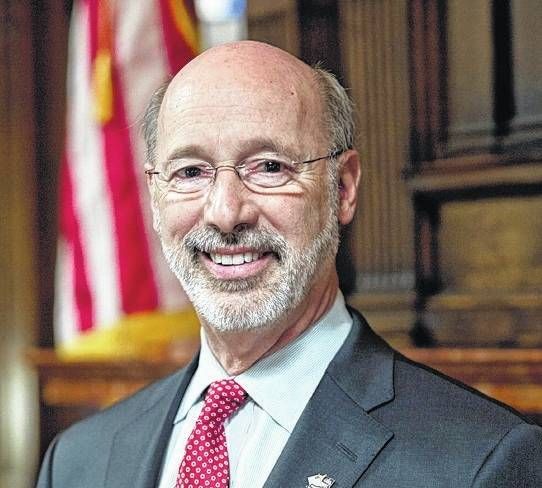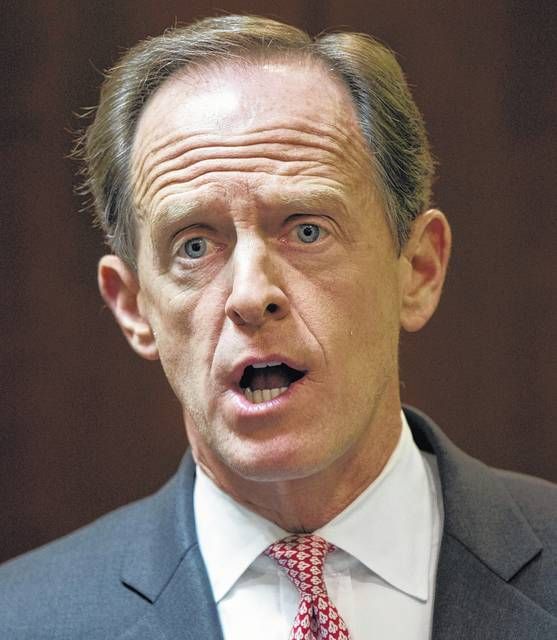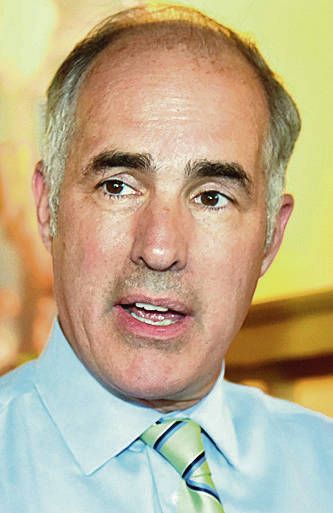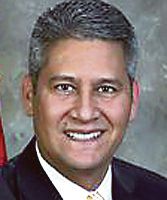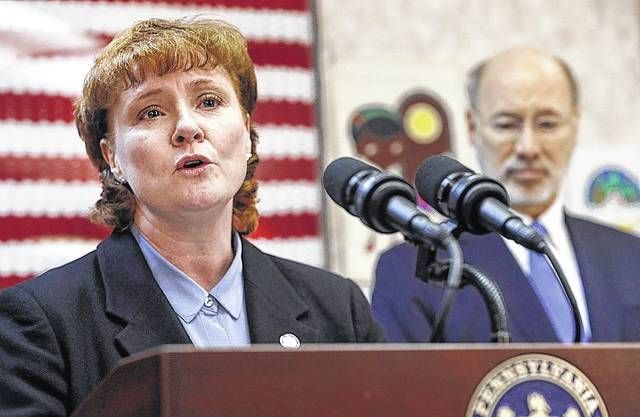Click here to subscribe today or Login.
WILKES-BARRE — U.S. Sen. Pat Toomey this week re-introduced a trio of measures designed to show that police lives matter:
• The Lifesaving Gear for Police Act reverses the Obama administration’s ban of certain federal gear for use by police departments.
• The Lt. Osvaldo Albarati Correctional Officer Self-Protection Act requires the Bureau of Prisons to provide a safe means for federal correctional officers to store their personal firearms while at work — either in a central storage area located at the prison or in a bureau-approved vehicle lockbox. Albarati was shot to death while driving home by someone hired by three inmates to murder him.
• Thin Blue Line Act makes killing a local law enforcement officer, prosecutor or first responders an “aggravating factor” when a jury considers whether to impose the death penalty. This already applies to federal law enforcement oficers and federal prosecutors.
Toomey, R-Lehigh Valley, said his legislation stands for two propositions: that law enforcement officers should be at least as well armed as the criminals and terrorists who attack them, and that if someone takes the life of a public safety officer, that person should expect to pay a high price.
“With National Police Week, which is dedicated to remembering our fallen officers, only days away, I believe it is time to send this message loud and clear,” Toomey said.
Department of Aging
holds event for Older
Americans Month
Pennsylvania Department of Aging Secretary Teresa Osborne and other state officials held a press conference in the Capitol Rotunda this week to celebrate May 2017 as Older Americans Month.
The U.S. Department of Health and Human Services’ Administration for Community Living designated the 2017 OAM theme as “Age Out Loud.”
The “Age Out Loud” theme is intended to shine a light on many important trends, such as how older Americans are working longer, trying new things, and engaging in their communities; and how they are taking charge, striving for wellness, focusing on independence, and advocating for themselves and others.
The Pennsylvania Department of Aging encourages all Pennsylvanians to celebrate Older Americans Month 2017 in diverse ways by focusing on how older adults in communities throughout the commonwealth are redefining aging — through work or volunteer pursuits, by taking charge of their health, and by maintaining their independence for as long as possible.
Loan program aims at
building infrastructure
to help seniors, disabled
Gov. Tom Wolf announced this week that the departments of Human Services and Community and Economic Development are accepting applications for the Home and Community-Based Services loan program.
The loans are intended to support long-term care providers as they position themselves to successfully transition to managed care in Community HealthChoices — Wolf’s plan to improve the quality of care for seniors and individuals with disabilities through managed long-term services and supports.
“HCBS will allow seniors and individuals living with disabilities to transition from living in long-term care facilities to residing in the community, ensuring that people have choices about where they live and receive services,” Wolf said.
It’s expected that loans — for start-ups, reconfiguration, or expansion — will range from $50,000 to $200,000.
DHS Secretary Ted Dallas said the loans will support projects that help the commonwealth to improve the quality of care for seniors and people with disabilities by building infrastructure so individuals will have more choices available to them.
DHS can receive loan applications at any time of the year and will process them on a first-come, first-served basis. DCED will then work with DHS to process the loans.
Casey-backed bill
would help protect
pregnant workers
U.S. Sen. Bob Casey and several of his colleagues will re-introduce legislation that would protect pregnant workers from workplace discrimination.
The Pregnant Workers Fairness Act would address legal ambiguities and help ensure that pregnant women are treated fairly on the job, Casey, D-Scranton, said.
The legislation, which is closely modeled after the Americans with Disabilities Act, would require employers to make reasonable accommodations — such as a minor job modification — that would allow pregnant workers to continue working and prevent them from being forced out on leave or out of their jobs. The bill also prohibits employers from denying employment opportunities to women based on their need for reasonable accommodations related to pregnancy, childbirth, or related medical conditions.
“Women should not live in fear of losing their jobs or being forced on leave because they are pregnant,” Casey said. “This legislation will ensure women are offered real protection in the fight against pregnancy discrimination.”
Emily Martin, National Women’s Law Center general counsel and vice president for Workplace Justice, said women make up almost half the workforce, but are too often forced to make an impossible choice — risk their own health and pregnancy to keep a job, or lose their income at the moment they can least afford it.
Martin said pregnant workers are ready, willing and able to work, but they are often pushed out by employers who refuse to make even minor temporary changes to their jobs to accommodate pregnant workers’ medical needs.
Casey said 62 percent of pregnant women and new moms are in the labor force, yet under current law, pregnant workers can be placed on unpaid leave or forced out of their jobs because of a pregnancy.
Pennsylvanians
can visit votesPA.com
for voting information
In preparation for Pennsylvania’s primary election on Tuesday, Secretary of State Pedro A. Cortés reminds Pennsylvanians to visit votesPA.com for comprehensive voting information.
“The goal of votesPA is to provide valuable information voters will need when they go to the polls on May 16,” Cortés said. “We encourage all eligible voters to be fully informed about their rights and what they can expect at the polling place.”
At votesPA.com, citizens can confirm their voter registration status, locate their polling place and get directions, find contact information for each county election office, view a demonstration video of the voting system used in each county, and file a complaint if they encounter any difficulty or questionable situation at the polling place.
The polls will be open from 7 a.m. to 8 p.m. as registered Democratic and Republican voters elect their parties’ nominees for: Justice of the Supreme Court of Pennsylvania, judges on the Superior and Commonwealth courts, magisterial district judges, county, school board and municipal offices, and precinct election officials.
